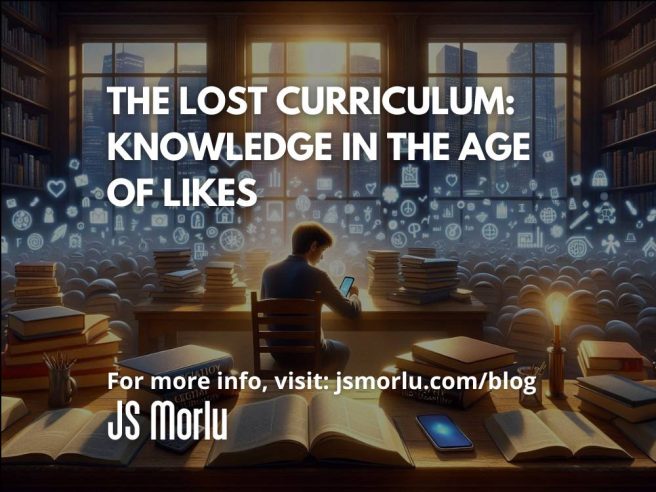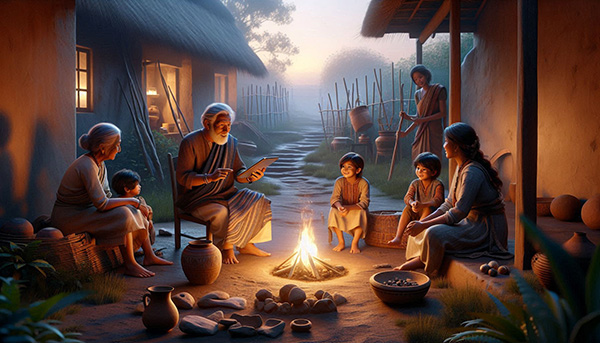By: John S. Morlu II, CPA
There was a time when “smart” meant you could talk about ideas that shaped the world — how governments work, why economies rise and fall, why humans fight, cooperate, or believe.
Now “smart” often means knowing how to edit a 12-second reel, drop a catchy caption, and collect hearts from strangers.
We didn’t just invent social media.
We invented a whole culture that rewards looking smart instead of being smart.
And while we were busy scrolling, we quietly stopped learning the very subjects that explain how the world actually works.
But here’s the catch:
The world still runs on the old rules.
Gravity still pulls. Numbers still count. History still repeats itself.
Ignoring these disciplines doesn’t make them go away.
It just makes us easier to fool.
So here’s the lost curriculum we desperately need to bring back — and why.
The 13 Subjects We’ve Forgotten
1. Sociology – The User Manual for Human Herds
Humans are social animals.
We copy each other. We follow crowds. We build institutions. Sometimes we tear them down.
Sociology explains why people line up overnight for a new phone, why online mobs cancel someone in 24 hours, or why whole societies can suddenly shift their values.
Fun fact: Gustave Le Bon’s The Crowd (1895) described how crowds behave decades before anyone had even heard a radio broadcast. He basically predicted Twitter mobs.
Skip sociology, and every viral trend feels like magic.
It isn’t magic. It’s herd behavior — and it’s predictable.
2. Economics – The Science of Incentives
People like to argue about the economy using emotions.
But most of the world runs on incentives — how people respond to prices, taxes, jobs, and rewards.
Want to know why gas prices rise, why housing is expensive, or why a government program fails?
Economics tells you to follow the incentives, not the speeches.
Rule of thumb: there’s no such thing as a free lunch. Not even when a politician swears it’s free.
3. Philosophy – The Original Antivirus for Bad Ideas
Philosophy teaches you to ask why instead of just how many likes.
It’s about questioning assumptions, not just memorizing facts.
We need it now more than ever because the internet is full of loud opinions pretending to be truth.
Socrates asked too many questions in Athens and had to drink poison.
Today he’d probably be flagged for “spreading misinformation.”
4. Psychology – The Map of the Mind
Psychology explains why we do things even when we know better.
Why we fall for scams.
Why we click on headlines we don’t trust.
Why we get addicted to feeds.
Without psychology, you’re just another easy target for the algorithm.
Pavlov trained dogs with a bell.
Instagram trained humans with a red notification dot.
Different bell. Same trick.
5. Geography – The Stage That Doesn’t Move
Mountains, rivers, ports, deserts, and resources quietly control the fate of nations.
They decide where trade happens, where wars break out, and even which cities thrive.
You can change leaders or slogans, but you can’t move the Himalayas or the Suez Canal.
Example: Why has Singapore become a global shipping hub?
Geography — sitting right on the busiest sea route.
6. Social & Political Thought – The Playbook of Power
Every big political slogan you hear today is basically a remix of an old idea:
- Leviathan (Hobbes)
- The Social Contract (Rousseau)
- Class Struggle (Marx)
If you don’t know the originals, you’ll keep falling for the remixes.
7. Mathematics – The Language of Reality
Numbers don’t trend, don’t lie, and don’t care about feelings.
They quietly describe how things really work — from compound interest to disease spread.
If you trust crypto memes but fear algebra, the problem isn’t the math.
8. Physics – The Law of Everything
Physics sets the boundaries for everything humans do.
Gravity doesn’t care about your opinion poll.
Energy, motion, and thermodynamics quietly shape every economy, every machine, and every hope for progress.
Fun fact: the steam engine — a triumph of thermodynamics — did more to end feudal economies than any political manifesto.
Try running a factory, a hospital, or a data center without understanding energy transfer.
9. Religion – The Operating System of Meaning
Believe it or not, religion shaped most of the world’s laws, rituals, and ideas about right and wrong.
Even if you’re not religious, you can’t understand history — or many of today’s conflicts — without it.
10. Classical English Literature – The Gym for Imagination
Reading Shakespeare, Austen, or Dickens isn’t just about old words.
It’s a workout for your mind.
It teaches empathy, irony, long-form reasoning, and the power of a good story.
Shakespeare invented more than 1,700 words.
TikTok trends usually recycle about 12 emojis.
11. History – The Long Memory of Civilization
History is humanity’s notebook of experiments — the wins, the mistakes, the disasters.
Ignore it, and you repeat the same mistakes — just with better Wi-Fi.
Philosopher George Santayana warned: “Those who cannot remember the past are condemned to repeat it.”
He didn’t even live to see reality TV.
12. Anthropology – The Long View of Us
Sociology studies society right now.
Anthropology looks across thousands of years.
It explains why storytelling, rituals, and family ties keep showing up no matter how modern the gadgets.
13. Arts & Aesthetics – The Secret Superpower
Memes, logos, music, architecture, and movie scenes often move people faster than speeches or data.
Truth is slow. A catchy design goes viral.
A single poster can launch a movement.
A single bad design can sink one.
The Big Swap: Depth for Validation
All these disciplines reward curiosity, patience, and humility.
But the online world rewards speed, outrage, and performance.
That’s why:
- Outrage outruns evidence.
- Hashtags beat history.
- Performers get attention; thinkers get ignored.
Bring Back Intellectual Stamina
The future won’t belong to the loudest voice.
It will belong to people who:
- Read across these fields.
- Connect the dots between physics and politics, between math and meaning, between history and algorithms.
- Use technology as a tool, not as a mirror.
We don’t lack intelligence.
We lack stamina for deep thinking.
💡 Bottom Line
If we don’t bring these subjects back into schools, books, debates, and even our daily conversations, we’ll keep mistaking applause for progress and popularity for wisdom.
That’s how you end up with a world that’s busy, loud, and trending for 24 hours… but learning nothing for the future.
Author: John S. Morlu II, CPA is the CEO and Chief Strategist of JS Morlu, leads a globally recognized public accounting and management consultancy firm. Under his visionary leadership, JS Morlu has become a pioneer in developing cutting-edge technologies across B2B, B2C, P2P, and B2G verticals. The firm’s groundbreaking innovations include AI-powered reconciliation software (ReckSoft.com) and advanced cloud accounting solutions (FinovatePro.com), setting new industry standards for efficiency, accuracy, and technological excellence.
JS Morlu LLC is a top-tier accounting firm based in Woodbridge, Virginia, with a team of highly experienced and qualified CPAs and business advisors. We are dedicated to providing comprehensive accounting, tax, and business advisory services to clients throughout the Washington, D.C. Metro Area and the surrounding regions. With over a decade of experience, we have cultivated a deep understanding of our clients’ needs and aspirations. We recognize that our clients seek more than just value-added accounting services; they seek a trusted partner who can guide them towards achieving their business goals and personal financial well-being.
Talk to us || What our clients says about us








